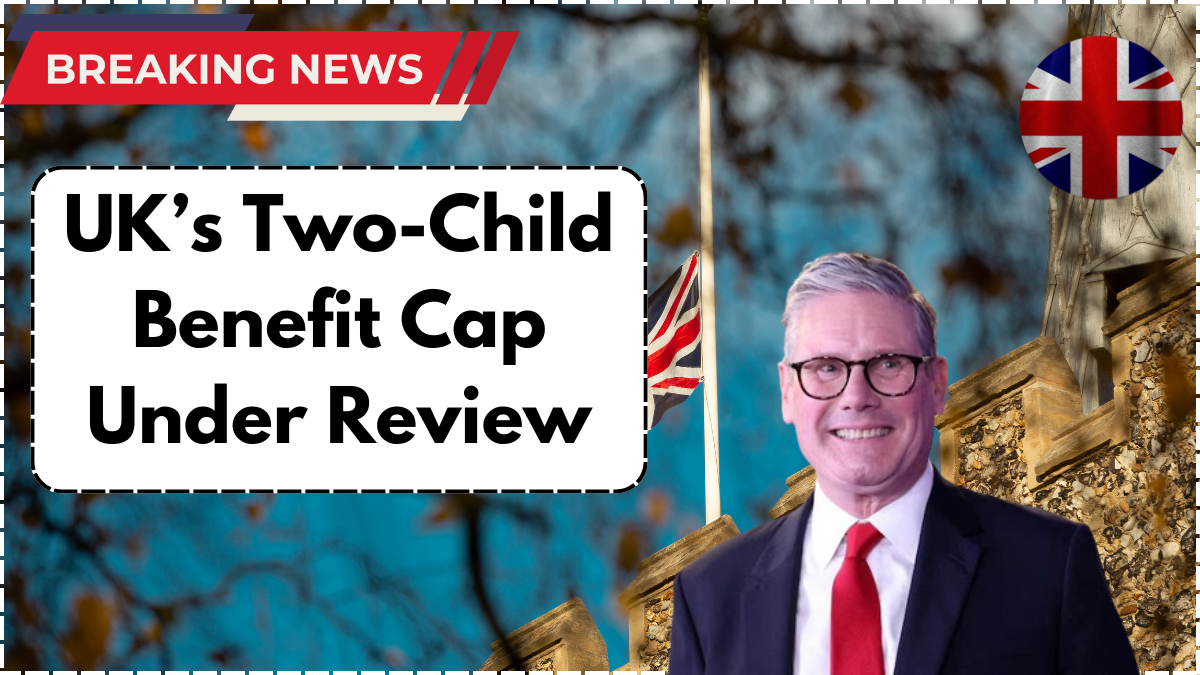The UK’s two-child benefit cap, implemented in April 2017, restricts families from claiming Child Tax Credit or Universal Credit for more than two children, with only a few exceptions. The rationale behind this policy was to align financial decision-making for families receiving benefits with those who do not rely on government support.
This policy affects families relying on financial aid to cover basic needs, impacting their ability to manage childcare expenses and household costs. While the government introduced this measure to promote fiscal responsibility, it has sparked significant debate due to its implications for low-income families.

The Extent of the Impact
As of the latest statistics, around 1.6 million children live in households impacted by the two-child limit. Approximately 450,000 of these children reside in families experiencing financial strain due to reduced benefits. Over the years, the number of affected households has steadily increased, exacerbating poverty rates in certain regions.
Families with three or more children are particularly vulnerable, often struggling to meet basic living expenses. Advocacy groups and charities have voiced concerns about the policy’s role in pushing more households below the poverty line, making it harder for parents to provide for their children’s needs.
Political Developments and Opposition
In July 2024, the Scottish National Party (SNP) pushed for an amendment to the King’s Speech, calling for the abolition of the two-child benefit cap. Stephen Flynn, the SNP’s Westminster leader, criticized the policy, arguing that it has forced thousands of Scottish children into poverty.
While the amendment gained support from Plaid Cymru, the Green Party, and independent politicians like former Labour leader Jeremy Corbyn, it ultimately faced rejection due to Labour’s strong majority in the House of Commons.
Labour’s stance on the issue has been complex. Before assuming office, Labour leader Sir Keir Starmer remained non-committal about repealing the cap, prioritizing economic stability first. This stance caused internal disputes within the party, with figures like Scottish Labour leader Anas Sarwar advocating for its removal. After forming the government, Labour established a child poverty task force, though it has yet to present a concrete plan regarding the cap’s future.
Consequences for Affected Families
For households with more than two children, the financial burden imposed by this policy can be overwhelming. Research suggests that nearly 26,000 families in Scotland alone are subject to the cap, with a significant concentration in Glasgow, Fife, and North Lanarkshire.
Single parents and low-income families are among the hardest hit. Many report struggling to afford essentials such as food, rent, and utility bills due to reduced financial support. Critics argue that instead of promoting financial independence, the cap exacerbates financial hardship, making it even more difficult for families to escape poverty.
Exemptions and Special Circumstances
Although the two-child limit applies broadly, certain exceptions allow families to claim benefits beyond two children:
- Non-Consensual Conception: Also known as the “rape clause,” this controversial exemption applies to children conceived under non-consensual circumstances. However, parents must provide evidence, a requirement that has drawn criticism for placing an emotional burden on victims.
- Multiple Births: Families who have twins, triplets, or other multiple births after the second child are exempt from the cap.
- Adoption: Some adopted children qualify for exemptions, though eligibility criteria vary and require verification.
Families seeking exemptions must provide sufficient documentation to support their claims, which can be a bureaucratic challenge.
Future Outlook: Will the Cap Be Repealed?
The fate of the two-child benefit cap remains uncertain. Advocacy groups, opposition parties, and charities continue to push for its removal, citing its detrimental effects on child poverty rates. However, economic constraints and government budget priorities pose significant obstacles to immediate reform.
While no official timeline for potential changes has been announced, families affected by the policy should remain informed about legislative updates. Monitoring government statements and consulting official sources can help families prepare for possible modifications in benefit regulations.
Political Positions on the Two-Child Benefit Cap
| Political Party/Group | Position on Two-Child Benefit Cap |
|---|---|
| Scottish National Party (SNP) | Advocates for complete abolition; proposed an amendment in July 2024. |
| Labour Party | Established a child poverty task force but remains divided on full repeal. |
| Conservative Party | Introduced the policy in 2017 and continues to support it as a financial responsibility measure. |
| Child Welfare Organizations | Oppose the cap, citing its role in increasing child poverty rates. |
Conclusion
The two-child benefit cap remains a contentious issue in UK politics and society. While the government argues it promotes financial responsibility, critics highlight its role in increasing poverty rates and placing undue stress on low-income families. As political debates continue, families affected by the policy must stay informed about potential legislative changes and available exemptions.
Frequently Asked Questions (FAQs)
1. What is the two-child benefit cap?
- It is a policy that limits parents from claiming Universal Credit or Child Tax Credit for more than two children, except in specific cases.
2. How many families are affected by the cap?
- Approximately 1.6 million children in the UK live in households impacted by the cap, with 450,000 experiencing financial hardship as a result.
3. Are there any exceptions to the cap?
- Yes, exceptions include cases of non-consensual conception, multiple births (twins, triplets), and some adoptions.
4. Why was the cap introduced?
- The government introduced the policy to encourage financial responsibility and reduce reliance on state benefits.
5. Will the policy be abolished?
- While there is political pressure to remove it, economic factors and government priorities may delay immediate changes.
For More Information Click Here
Pari is a passionate writer known for captivating stories that blend imagination and reality. Inspired by travel, history, and everyday moments, Pari crafts narratives that resonate deeply with readers.